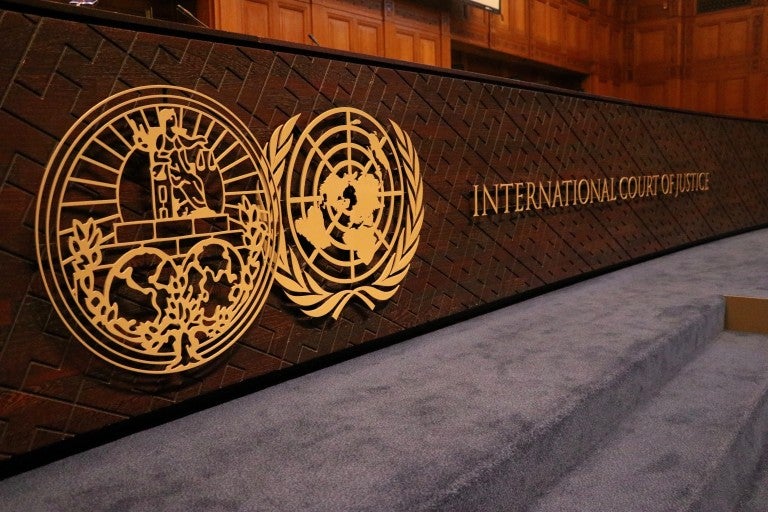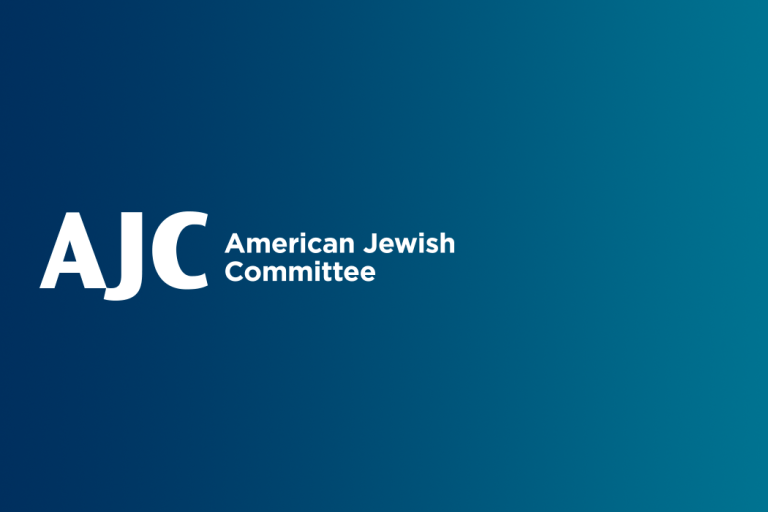June 3, 2020
The impetus for the protests rocking America can be explained in less than eight minutes and 46 seconds – the amount of time a Minneapolis police officer knelt on George Floyd’s neck, crushing the life out of him while three other officers watched.
But it takes more time and effort to learn how our nation got to this point, how to make sure these senseless killings of African Americans end, and how American Jews can join the fight.
Below AJC offers pieces of literature, journalism, and film to help American Jews understand what’s at stake. Just as antisemitism is a societal problem for all people—not just Jews—to counter, all Americans must come together to combat racism.
- The Fire Next Time
By James Baldwin
In 1963, James Baldwin published a pair of essays, one in the form of a motivational letter to his nephew, on taking up the struggle for racial equality in the U.S. In that essay, he makes a direct connection between the brutality that has faced Blacks and the slaughter of six million Jews during World War II. He expresses the fear that one day African Americans will face the same genocide. “I could not but feel, in those sorrowful years, that this human indifference, concerning which I knew so much already, would be my portion on the day that the United States decided to murder its Negroes systematically, instead of little by little and catch-as-catch-can.” The Jewish charge to fight for racial justice could hardly be clearer.
Available wherever books are sold.
- Tears We Can Not Stop: A Sermon to White America
By Michael Eric Dyson
If America ever hopes to achieve racial equality, it’s up to white people to make it happen. So says Michael Eric Dyson, a sociology professor at Georgetown University, cable news pundit, and author of more than twenty books. He’s also an ordained Baptist preacher. This particularly fiery sermon frames a litany of sins as a call to action. Last year, Dyson launched a tour of historically black colleges and universities called "Conversation Peace,” which sought to spark discussion among students about the historical and current relationship between African Americans and Jews.
Available wherever books are sold
- Black Power, Jewish Politics: Reinventing the Alliance in the 1960s
By Marc Dollinger
Jewish historian Marc Dollinger offers a corrective to the common narrative that Blacks and American Jews diverged after the Civil Rights Era. As the Black Power Movement of the 60s and 70s emphasized racial pride, economic empowerment, and the creation of political and cultural institutions, it also inspired Jewish political movements such as Zionism and the campaign to help Jews emigrate from the Soviet Union. Dollinger’s revision of the narrative inspires a re-examination of our nation’s history and the promise of partnership between the two communities.
Available wherever books are sold.
- Good Talk
By Mira Jacob
In comic book style, writer Mira Jacob helps decode the P.O.C. (person of color) experience for her biracial son who is dark-skinned like her. Her graphic memoir published in 2019 illustrates the micro and macroaggressions Jacob has faced as an Indian woman growing up in the U.S. and how she tries to answer or avoid triggering her son’s questions. “Is it bad to be brown?” “Are white people afraid of brown people?” And referring to his white Jewish father: “Is Daddy afraid of us?” The colorful illustrations and wry humor in this book belie its sensitive handling of a complicated topic.
Available wherever books are sold
- Just Mercy
By Bryan Stevenson
You can read the book or watch the movie. You already know which one’s better. Both recount the real-life saga of lawyer Bryan Stevenson’s successful efforts to free Walter McMillian, a man on Alabama’s Death Row for a murder he did not commit. But author Stevenson tells the story in the broader context of racial injustice in the U.S. and reflects on the many other less prominent families and communities torn apart by wrongful convictions. The film, released in December, is the first made with an inclusion rider, a provision in a filmmaker’s contract that requires a certain degree of diversity for cast and crew positions.
Available wherever books are sold.
Warner Bros. has made this movie free on digital platforms throughout June.
- Me and White Supremacy
By Layla F. Saad
“Who, me? Yes, you.” Author Layla F. Saad turned her 2018 Instagram challenge into a guide to help readers own their part in perpetuating racism. She argues that white supremacy consistently benefits white people while, unbeknownst to them, harming others. The book explains how to be an effective ally, the history of racial stereotypes, and how to change one's views of race. After the attacks on synagogues in Pittsburgh and Poway, AJC offered this primer on white supremacy, an ideology that continues to be one of our nation’s exports, inspiring the likes of Adolf Hitler and the Nazis.
Available wherever books are sold
- BlacKkKlansman
Directed by Spike Lee
How did Spike Lee give his movie about a black police detective infiltrating the KKK even more of a twist? He made his police partner Jewish. That cinematic choice hammers home the point that hate groups never stop at targeting one minority. “Jewish people are No. 2 on the list as far as the Klan goes,” Lee told the Jewish Telegraphic Agency. In the film, the Jewish detective played by Adam Driver admits he always thought of himself as just another white kid. That is, until he experiences the Klan’s antisemitism firsthand and learns there can be a lot at stake for “just another white kid.”
Available on Amazon Prime and Netflix
- Shared Legacies: The African American Jewish Civil Rights Alliance
Directed by Shari Rogers
The modern alliance between African Americans and Jewish Americans dates back to the formation of the NAACP in 1909. Since then, both groups have endured hatred and discrimination, often locking arms and fighting together. While Blacks have focused on fighting police brutality and mass incarceration, Jews have focused on combating antisemitism and explaining why questioning the existence of Israel poses a threat. But the white supremacy that emerged in Charlottesville targets both. Shared Legacies, which premiered earlier this year at the Atlanta Jewish Film Festival, highlights why it’s incumbent to resurrect the partnership and fight together once again.


